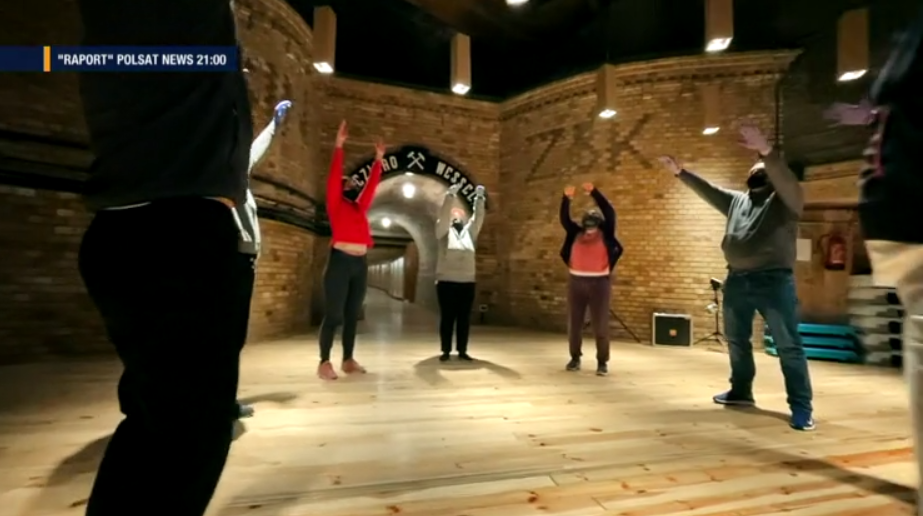A spa 135 metres below ground in an ancient Polish salt mine is helping COVID-19 sufferers recover from the long-term effects of the virus.
The UNESCO-listed Wieliczka Salt Mine near Kraków, which has operated since the 13th century and today is one of Poland’s best-known tourist attractions, has long been also used as a rehabilitation spa for people with breathing problems.
It is believed that the microclimate in the mines, including the presence of minerals such as potassium, magnesium and calcium in the air, can have beneficial effects. Patients have been visiting it for treatment since the 19th century, and the mine now hosts a full health resort, which supports people suffering from respiratory and pulmonary diseases as well as allergies.
In recent months, the facilities have also welcomed a number of people suffering from long-term effects of COVID-19 infections. Katarzyna Rys, the director of the health resort, told Polsat News that the mine had a “special type of climate” which helped people recover from breathing problems.
“The purity of the air, its chemical composition, its humidity – all these elements facilitate the rehabilitation process,” she explained. A physiotherapist at the health resort, Paweł Janus, added that the effectiveness of exercises would be “significantly lower” if practised by patients above ground.
Andrzej Garycki, who caught COVID-19 at the end of last year, told TVN24 that conditions in the mine were “very conducive to improving breathing”.
“The exercises proposed by physiotherapists who approach everyone individually are amazing,” he added. “It is important that the instructors also build mental efficiency and restore self-confidence. Now I feel like I was before COVID-19.”
Patients must be referred to the resort by a specialist doctor, although the management board of the salt mine has asked the health minister if referrals could be issued by normal family doctors, to ensure that as many people as possible can be supported by treatment. Therapy is available for a fee, or can be paid for via Poland’s state health service.
The Wieliczka Salt Mine, which has been in operation for the last 700 years, contains the largest underground museum in Europe, attracting nearly two million tourists a year. In 1978, it was included on the original list of UNESCO World Heritage Sites.
The mine boasts chapels and art galleries, including renowned salt sculptures, along a three-and-a-half kilometre tourist route – which covers less than 2% of the total length of passages in the mine.
The Wieliczka salt mine, located in Krakow and opened back in the 13th century pic.twitter.com/dyqiCliDiZ
— Tudor architecture (@ArchitectureTud) March 9, 2021
Main image credit: “Raport” Polsat News (screenshot)

Juliette Bretan is a freelance journalist covering Polish and Eastern European current affairs and culture. Her work has featured on the BBC World Service, and in CityMetric, The Independent, Ozy, New Eastern Europe and Culture.pl.




















